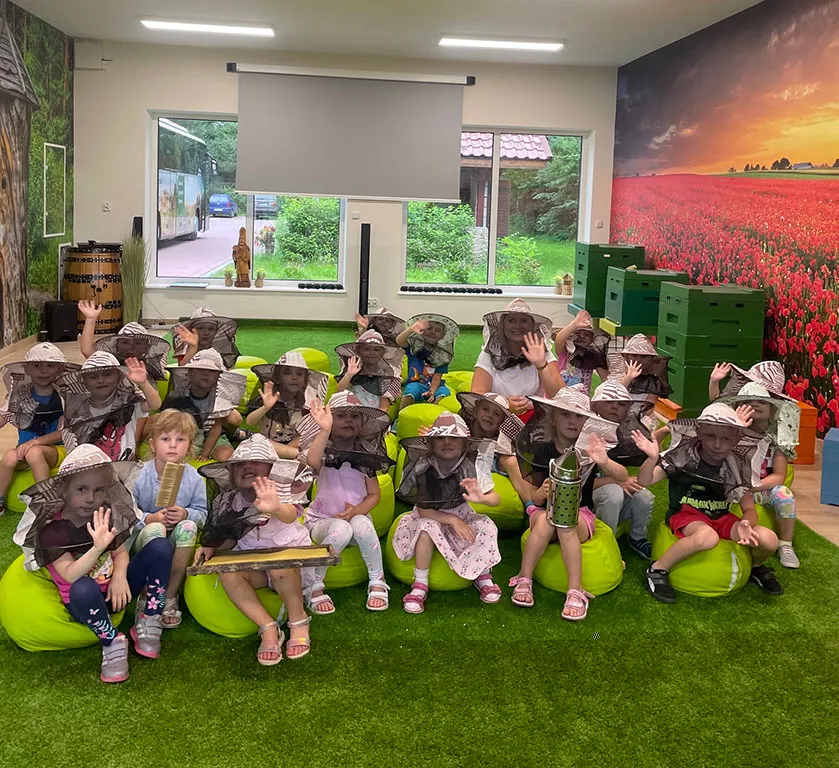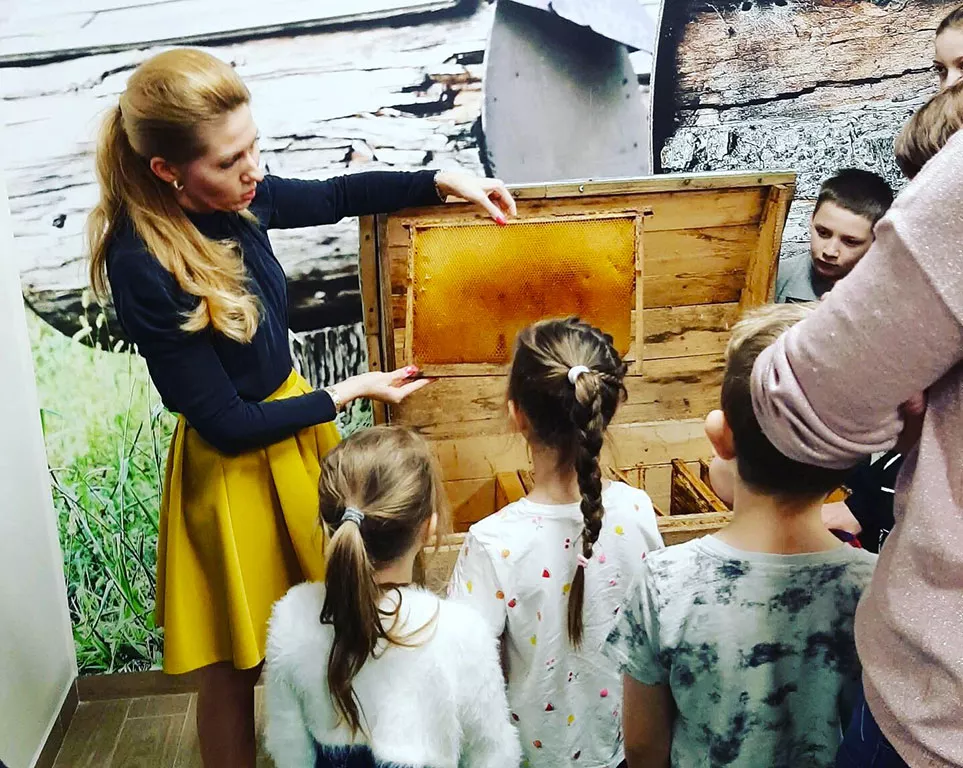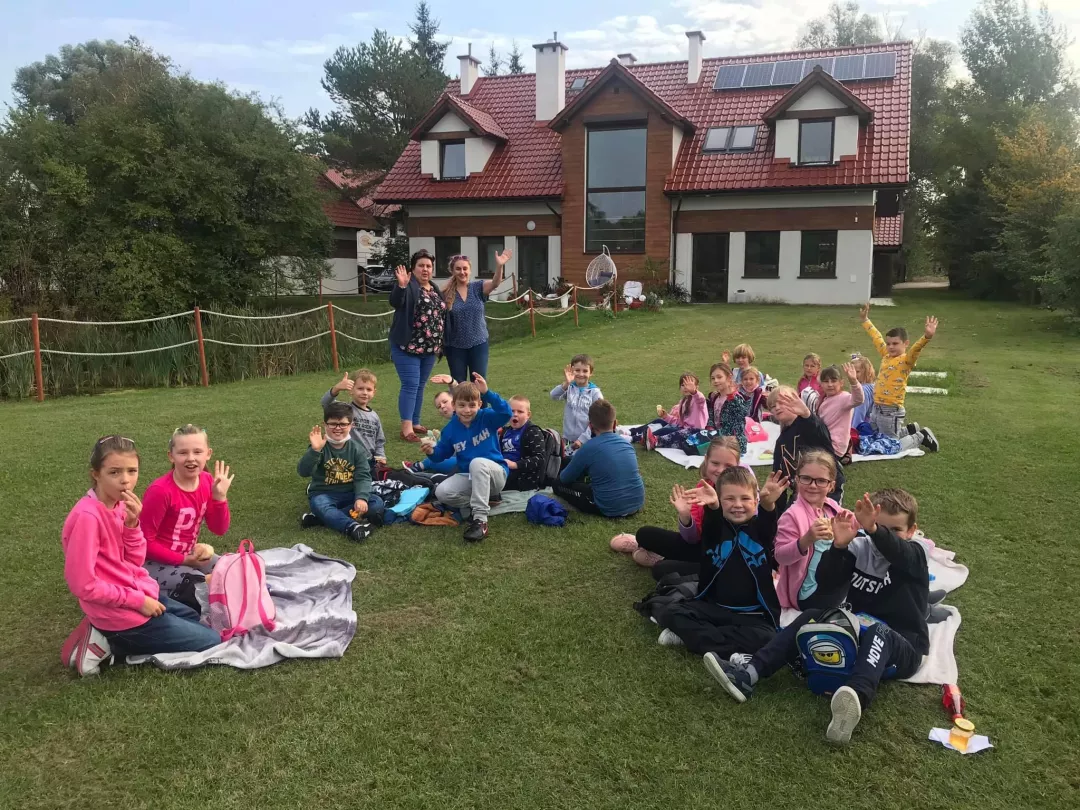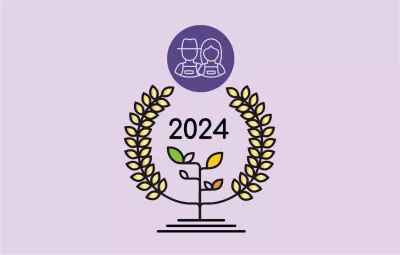General information
RDP Priority
- P6. Social inclusion and local development
RDP Focus Area
- 6B: Local development
RDP Measure
- M19: LEADER/CLLD
Beneficiary type
- Farmer / land manager
Summary
The creation of Zagroda Edukacyjna Pszczelandia (Educational Farm Pszczelandia – Bee-land) project is an innovative initiative created by Dariusz and Małgorzata Pucer, who wished to convey their knowledge of beekeeping and ecology to a wide range of people. With financial support from LEADER and the marshal's office of the Warmińsko-Mazurskie Voivodeship, they successfully created an interactive educational farm, considered the best in the region.
Since opening in 2020, Pszczelandia has become a popular place, visited daily by children, young people and adults. Małgorzata has developed several educational trails related to the role of pollinators in the environment, beekeeping, healthy food and ecology. After completing an apitherapy seminar (requiring 120 hours of training), Małgorzata introduced new workshops for young people and adults. These allow participants to learn about the world of bees, taste honey rarities and participate in scientific demonstrations.
Pszczelandia has been accepted into the national network of educational farms, underlining its importance for environmental education. It provides high quality education and inspires concern for nature. Activities undertaken as part of the Pszczelandia project have contributed to the development of the local community, environmental protection and the economic growth of the region.
Results
Environmental:
- Increased income.
- Reduced unemployment.
- Positive impact on the economic development of the region.
- Installing solar panels that cover 100 % of Pszczelandia's electricity needs – reduced carbon emissions and electricity costs, improved energy efficiency of the farm and protected the environment.
Economic:
- 15.4% increase in owners' income in the third year of operation.
- Employment of two unemployed women from the municipality of Barciany (formerly dominated by collectivized farming) – helping to reduce unemployment and improve the economic situation of local communities.
Awareness:
- Cooperation with local environmental organisations in a number of events – raises public awareness of bee conservation and the importance of their role in the ecosystem.
- Educating the community through training, workshops and study visits promotes environmental awareness and healthy lifestyles – over 7 000 participants.
- Workshops demonstrate and promote entrepreneurial attitudes, build social bonds and strengthen the local community.
Context

Dariusz Pucer has run a traditional apiary with 1 000 bee stems since 1988, continuing a family tradition with his wife Małgorzata in the municipality of Barciany in northern Poland. Initially, honey was sold in bulk to confectioning companies. In 2011, a honey-packing plant was established, meeting the highest quality standards and aimed at introducing Pasieka Pucer brand honey to domestic and foreign markets. Joining the Warmia Mazury Powiśle Culinary Heritage Network in 2012 and obtaining an organic production certificate for the apiary in 2014 underlined the commitment to producing healthy and organic food.
In 2018, production on more than 19 hectares of farmland was converted to organic methods, while in 2019, an orchard of organic apple trees was established. The owners wished to pass on the knowledge they had gained to a wide range of people, which resulted in funding for the creation of the interactive educational farm – Pszczelandia. The opening of the farm in 2020 attracted interested visitors every day, and Małgorzata Pucer developed a series of educational trails related to beekeeping, healthy food and ecology.
Thanks to support from the Rural Development Programme's support for local development, under the LEADER initiative in developing economic activity through the Barcja Local Action Group, the modern educational Pszczelandia Farm was established and has gone on to become a popular place where workshops for children, young people and adults are held. Every day, the project holders educate people on the extraordinary role of bees in the environment, organic products and their importance for health.
Objectives
The main aim was the expansion of an existing business with a new activity, namely extracurricular education. It was hoped that this would develop the primary business and lead to increased income, and the creation of two jobs directly on the farm.
Via the project, the beneficiaries also hoped to be able to use solar panels to provide the farm with renewable energy sources and target the creation of new jobs for women in a deprived region formerly dominated by collectivised farms. They also aimed at raising environmental awareness among children and young people.
Activities
A new 300 m2 building was opened in January 2020 in the village of Pastwiska for educational classes and workshops for children, young people and adults. The building has three educational rooms and is equipped with photovoltaic panels that fully secure its energy needs without polluting the atmosphere. Approximately one hectare of green space has been developed for the educational farm (namely outdoor games).

The project developed four educational pathways. The first is 'a great adventure with a little bee'. Participants are transported into a space of optical illusions where they find out what is going on in the hive (in safety), learn about the history of beekeeping, seasonal work in the apiary, apiary tools and the role of bees, how to protect the natural environment of these hard-working insects, and bee products. They also get to make a beeswax candle with their own hands.
'Golden drop of honey' is a programme where participants learn about bee products and their health benefits. The owner of the farm explains the difference between conventional and organic honey and what the 'green leaf' logo means. At the end, the participants fill a jar of honey themselves, on which they stick a personally designed label complying with the relevant regulations.
Main results
The project has contributed to a reduction in CO2 emissions, lower electricity costs, increased income and reduced unemployment, which has had a positive impact on the economic development of the region.
Installing solar panels that cover 100% of Pszczelandia's electricity needs has helped reduce carbon emissions and electricity costs, improve the energy efficiency of the farm and protect the environment.
A 15.4% increase in the owners' income was registered in the third year of operation, demonstrating the success of the enterprise and its profitability. The employment of two unemployed women from the municipality of Barciany (formerly dominated by collectivised farming) has contributed to reducing unemployment and improving the economic situation of the local communities.
Cooperation with local environmental organisations in a number of events has raised public awareness of bee conservation and the importance of their role in the ecosystem. Meanwhile, educating the community through training, workshops and study visits has promoted environmental awareness and healthy lifestyles, with over 7 000 participants taking part in the workshops which demonstrate and promote an entrepreneurial attitude in the countryside. They also involve spending time together, which builds social bonds and strengthens the local community.
Overall, the project has helped to improve the quality of life and the image of the countryside as a modern place to live, learn and be entertained.
Key lessons
Despite the COVID-19 pandemic, the project managed to organise workshops attended by more than 7 000 people. This represents a huge success and is proof that the initiative is a very popular one.
Its activities have also been recognised in various national competitions: Way to Success 2020, Green Summer 2021, Friendly Village 2023 and My Smart Village 2023. The workshops at the educational farm were awarded the Product of Warmia and Mazury certificate.
The greatest satisfaction for the leaders of the project, however, stems from the fact that the participants in the workshops are happy and get a great deal of enjoyment and valuable experience out of them.
Contacts
Ms. Małgorzata Pucer


